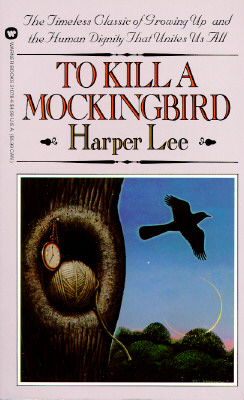From today's Wall Street Journal:
Nonprofit Hospitals
Flex Pricing Power
In Roanoke, Va., Carilion's Fees
Exceed Those of Competitors;
The $4,727 Colonoscopy
By JOHN CARREYROU
August 28, 2008; Page A1
ROANOKE, Va. -- In 1989, the U.S. Department of Justice tried but failed to prevent a merger between nonprofit Carilion Health System and this former railroad town's other hospital. The merger, it warned in an unsuccessful antitrust lawsuit, would create a monopoly over medical care in the area.
Nearly two decades later, the cost of health care in the Roanoke Valley -- a region in southwestern Virginia with a population of 300,000 -- is soaring. Health-insurance rates in Roanoke have gone from being the lowest in the state to the highest.
Carilion's market clout is manifest in other ways. With eight hospitals, 11,000 employees and $1 billion in assets, the tax-exempt hospital system has become one of the dominant players in the Roanoke Valley's economy. Its dozens of subsidiaries include businesses ranging from athletic clubs to a venture-capital fund.
The power of nonprofit hospital systems like Carilion over their regional communities has increased in recent years as their incomes have surged. Critics charge this is creating untaxed local health-care monopolies that drive the costs of care higher for patients and businesses.
"It's a one-market town here in terms of health care," says Sam Lionberger, who owns a local construction firm. "Carilion has the leverage."
Carilion acknowledges its influence in the local community but says there is nothing untoward about it. The hospital says it doesn't have a monopoly over the Roanoke Valley health-care market because it faces robust competition from Lewis-Gale Medical Center, a hospital located in nearby Salem, Va., and owned by for-profit chain HCA Inc.
Carilion says it charges more for certain procedures because it has to subsidize operations such as an emergency department and treatment for the uninsured. Edward Murphy, Carilion's CEO, says the high cost of health care in Roanoke reflects the national increase in such costs, which he says is driven by overutilization of medical services. Carilion is converting to a clinic model, in which doctors are employees of the hospital system and work more closely together to coordinate care, in an effort to cut down on unnecessary tests and procedures, he says. "Fragmentation is the enemy of quality" and affordable care, Dr. Murphy says.
The Roanoke City General District Court in downtown Roanoke devotes one morning a week to Carilion cases -- lawsuits the hospital files against patients who haven't paid bills.
However, the clinic project has provoked a backlash from a group of local independent doctors, who say it is designed to stifle competition.
Originally set up to serve the poor, nonprofit hospitals account for the majority of U.S. hospitals. They are exempt from taxes and are supposed to channel income they generate back into operations, while providing benefits to their communities. But they have come under fire from patient advocates and members of Congress for stinting on charity care even as they amass large cash hoards, build new facilities and award big paychecks to their executives.
Fueled by large, untaxed investment gains, Carilion's profits have risen over the past five years, reaching $107 million last year. Over the same period, the total annual compensation of its chief executive, Dr. Murphy, nearly tripled to $2.07 million. His predecessor, Thomas Robertson, received a lump-sum pension from Carilion of $7.4 million in 2003, on top of more than $2 million in previous pension payouts.
Carilion says Dr. Murphy's compensation is in line with comparable health-care organizations and notes he doesn't receive car allowances, a spousal allowance or club memberships. It says Mr. Robertson's pension accrued over a 32-year career at Carilion.
Carilion estimates it receives about $50 million a year in tax exemptions. It dispensed $42 million in charity care in 2007 and $30 million in 2006.
After the 1989 merger, Carilion continued to operate Roanoke's two hospitals separately. It later consolidated the hospital boards and in 2006, transferred most of Roanoke Community Hospital's staff and services to a renovated and enlarged Roanoke Memorial Hospital.
The moves eliminated any hospital competition in Roanoke proper, enabling Carilion to raise its prices and contributing to a spike in health-insurance rates in the region, one of the least affluent parts of the state, according to local doctors and health-insurance brokers.
The construction of a new medical campus around Roanoke Memorial Hospital began several years ago.
Alan Bayse, founder of a local benefits-consulting firm who has sold health insurance in the area for 30 years, says health-insurance rates in the Roanoke Valley used to be 20% lower than in Richmond, Virginia's capital, and the lowest in the state. Today, he says, they are the highest in the state and 25% higher than in Richmond, citing rate information from insurer Cigna Corp. Anthem, another health insurer, says its rates are 6% higher in Roanoke than in Richmond.
Mr. Lionberger, whose construction company has about 100 employees, says his health-care costs have risen 50% over the past three years, hampering his ability to compete with contractors from other parts of the state. "It's frustrating," he says.
While Carilion strengthened its power in the hospital market, Roanoke continued to be home to a community of independent doctors numbering in the hundreds.
Taking the Helm
In 2001, Dr. Murphy took the nonprofit hospital system's helm. Dr. Murphy, who has a medical degree from Harvard but doesn't practice medicine, says he was convinced that the cost and quality of care in Roanoke could be improved if doctors worked in a more centralized system. In June 2006, he announced a seven-year, $100 million plan to transform Carilion into a multispecialty clinic, like the Mayo Clinic.
Stephen Voss/WpN for The Wall Street Journal
Carilion is building a state-of-the-art new medical campus in Roanoke.
Carilion began approaching private physician groups, offering to buy their practices and pay their salaries. Some accepted, but others balked. Some doctors who chose to remain independent say the number of patients referred to them by Carilion physicians plummeted. Carilion controls a large proportion of Roanoke's referrals because it employs a majority of doctors who make them, such as family practitioners, pediatricians and emergency physicians.
Joseph Alhadeff, an orthopedic surgeon who is a member of a private practice called Roanoke Orthopedic Center, says the number of joint replacements he performed dropped off sharply after he stopped getting such referrals from Carilion doctors, prompting him to plan to relocate to Pennsylvania. "I spent seven years building up a practice and watched it evaporate in six months," he says.
Carilion spokesman Eric Earnhart says the hospital system didn't engage "in any activity to reduce or divert" referrals from Dr. Alhadeff. Mr. Earnhart adds that Carilion continues to refer numerous cases to Roanoke Orthopedic Center.
Geoffrey Harter, an ear, nose and throat doctor at another Roanoke private practice, Jefferson Surgical Clinic, says Carilion-employed colleagues told him the hospital system asked them not to refer patients to doctors it didn't employ, calling such referrals "leakage." Keeping referrals within Carilion is lucrative for the hospital system because it ensures tests and procedures performed on patients take place at Carilion facilities.
Dr. Murphy says Carilion uses the term "leakage" in internal marketing discussions and that he would rather see its doctors refer patients to other Carilion doctors to optimize their care. But he says Carilion doesn't require its doctors to keep referrals in-house even though it would be legal to do so.
As tension between Carilion and Roanoke's independent doctors grew in 2006, a group of 200 doctors formed an organization called the Coalition for Responsible Healthcare to protest the Carilion Clinic plan. The group posted a petition on its Web site and put up billboards around Roanoke that read: "Carilion Clinic. Big Dream. Big Questions." The local newspaper, the Roanoke Times, covered the controversy in a series of articles written by its health-care reporter, Jeff Sturgeon.
A few months later, in March 2007, the Roanoke Times moved Mr. Sturgeon off the health-care beat after Carilion complained repeatedly about his coverage. Carilion says it communicated its displeasure to the paper's editors, but never asked that Mr. Sturgeon be reassigned. Carilion withdrew most of its advertising from the paper, but says it did that as part of a reallocation of its ad budget. "Any friction that exists between an organization like us and the media is entirely appropriate," Mr. Earnhart says.
Mr. Sturgeon, who now covers transportation, declined requests for comment. Carole Tarrant, the Roanoke Times's editor, said: "We're covering Carilion like we always have and always will, and have no plans to change how we cover Carilion." She declined to elaborate.
New Campus
A large part of the clinic conversion's costs have involved the construction of a new medical campus around Roanoke Memorial Hospital that began several years earlier.
The lead contractor building the site is Swedish construction giant Skanska. But one of the project's biggest beneficiaries has been J.M. Turner & Co., which is owned by Carilion board member Jay Turner. Carilion says it paid J.M. Turner a total of $14.9 million in direct contracting work from 2004 to 2007.
Dr. Murphy says Carilion's board authorized "arm's length work" with J.M. Turner, but adds that "a case could be made that we shouldn't award work to J.M. Turner to avoid the appearance of impropriety."
Carilion also paid Skanska, the lead contractor, a total of $120.8 million from 2003 to 2007. Some of that money flowed back to J.M. Turner as subcontracting work, according to Skanska and J.M. Turner. The companies and Carilion declined to say how much.
In an email, Mr. Turner said he recuses himself from all Carilion board decisions that involve his company. He added that his firm passed on much of the $14.9 million in direct contracting work it received from Carilion to other subcontractors.
Mr. Turner isn't the only Carilion board member with a financial stake in the new medical campus. Another board member, Warner Dalhouse, has invested in a hotel being built on the campus to accommodate patients and their families. HomeTown Bank, a local bank Mr. Dalhouse founded and of which he was until recently chairman, is financing the hotel's construction. Dr. Murphy and Mr. Turner sit on HomeTown Bank's board.
Carilion and Mr. Dalhouse say he didn't make his $130,000 investment in the hotel until after Carilion sold the parcel to Texas developers in early 2006. "I wasn't dealing with Carilion. I was dealing with the new owners of that land who had paid fair market value for it," Mr. Dalhouse says.
Carilion says its transformation into a multispecialty clinic will eventually lower local health-care costs. But many patients say they have yet to see relief from Carilion medical bills.
Stephen Voss/WpN for The Wall Street Journal
Carilion awarded J.M. Turner & Co., which is owned and run by Carilion board member Jay Turner, at least $14.9 million in construction work.
The Roanoke City General District Court devotes one morning a week to cases filed by Carilion. In its fiscal year ended Sept. 30, Carilion says it sued 9,888 patients, garnished the wages of 5,478 people and placed liens on 3,920 homes. Carilion says the people it takes to court have the means to pay their bills.
On a Thursday morning in June, a Carilion representative waited outside a courtroom to intercept the half-dozen patients who had responded to summonses to appear in court. She took them to a side room to work out payment plans. A judge later called out names of close to 100 patients who didn't show and, one-by-one, entered judgments against them.
One of the patients who came to court, a 32-year-old housewife named Christie Masellis, faced a $12,137.12 bill. She had gastric bypass surgery at a Carilion facility in 2005. After developing complications, she required two more surgeries. She says her insurer covered the first surgery but not the two follow-ups because it changed its coverage policy.
Mrs. Masellis has two children. Her husband, Mark, earns about $49,000 a year working for an auto-parts distributor. Mrs. Masellis says she inquired about qualifying for hospital financial assistance, but the Carilion representative told her she was no longer eligible for charity care because her account was past due. The representative agreed to put her account on hold until Sept. 30 but offered her no discount. The bill included $2,514.82 in interest charges Carilion added to the original debt of $9,622.30.
Carilion's Mr. Earnhart says Mrs. Masellis had already received more than $15,000 in charity-care discounts. The suit Carilion filed is "for the remainder of the bill," he says.
Mr. and Mrs. Masellis have begun the process of filing for personal bankruptcy. Mr. Masellis says the hospital bill was a big factor in the decision, though the couple has other debts, including a $68,000 mortgage.
When some patients don't pay their bills, Carilion places liens on their homes. Carilion says it doesn't track how many liens it has outstanding, but the close to 4,000 it filed in 2007 "is representative of a typical year," Mr. Earnhart says. Carilion doesn't foreclose on homes and only collects when properties are sold, he says.
Dr. Murphy says Carilion only sues patients and places liens on their homes if it believes they have the ability to pay. "If you're asking me if it's right in a right-and-wrong sense, it's not," he says. But Carilion can't be blamed for the country's "broken" health-care system, he says.
Write to John Carreyrou at john.carreyrou@wsj.com




 Pesto cubes to enjoy this winter...
Pesto cubes to enjoy this winter... Dried organo, thyme and bay leaves for cooking...
Dried organo, thyme and bay leaves for cooking... Virginia drugged on catnip...
Virginia drugged on catnip...

